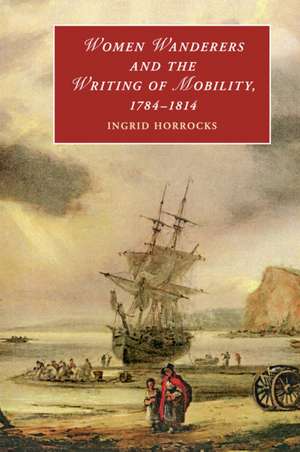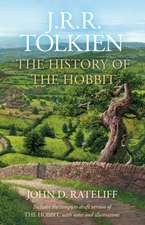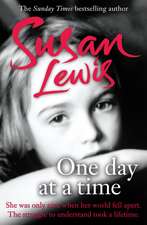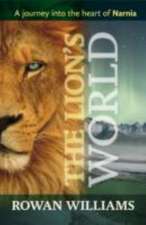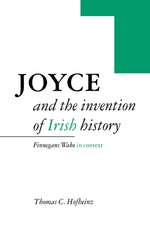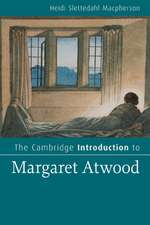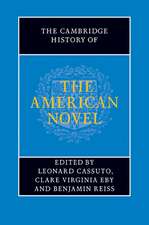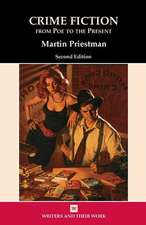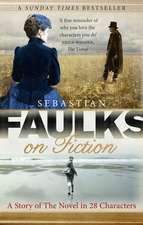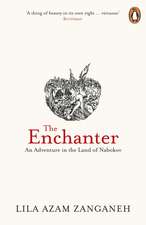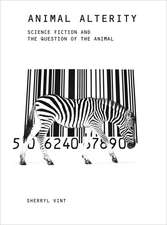Women Wanderers and the Writing of Mobility, 1784–1814: Cambridge Studies in Romanticism, cartea 115
Autor Ingrid Horrocksen Limba Engleză Paperback – 10 iul 2019
| Toate formatele și edițiile | Preț | Express |
|---|---|---|
| Paperback (1) | 286.13 lei 6-8 săpt. | |
| Cambridge University Press – 10 iul 2019 | 286.13 lei 6-8 săpt. | |
| Hardback (1) | 695.93 lei 6-8 săpt. | |
| Cambridge University Press – 22 mar 2017 | 695.93 lei 6-8 săpt. |
Din seria Cambridge Studies in Romanticism
-
 Preț: 215.29 lei
Preț: 215.29 lei - 9%
 Preț: 593.20 lei
Preț: 593.20 lei - 9%
 Preț: 592.76 lei
Preț: 592.76 lei - 9%
 Preț: 593.09 lei
Preț: 593.09 lei -
 Preț: 177.45 lei
Preț: 177.45 lei - 9%
 Preț: 627.85 lei
Preț: 627.85 lei - 11%
 Preț: 693.36 lei
Preț: 693.36 lei - 11%
 Preț: 695.06 lei
Preț: 695.06 lei - 8%
 Preț: 530.64 lei
Preț: 530.64 lei - 9%
 Preț: 592.48 lei
Preț: 592.48 lei - 9%
 Preț: 593.36 lei
Preț: 593.36 lei -
 Preț: 296.10 lei
Preț: 296.10 lei - 9%
 Preț: 668.29 lei
Preț: 668.29 lei -
 Preț: 267.72 lei
Preț: 267.72 lei -
 Preț: 203.67 lei
Preț: 203.67 lei -
 Preț: 284.17 lei
Preț: 284.17 lei - 11%
 Preț: 637.89 lei
Preț: 637.89 lei - 11%
 Preț: 640.30 lei
Preț: 640.30 lei -
 Preț: 283.25 lei
Preț: 283.25 lei - 11%
 Preț: 635.84 lei
Preț: 635.84 lei -
 Preț: 202.52 lei
Preț: 202.52 lei -
 Preț: 405.48 lei
Preț: 405.48 lei -
 Preț: 307.06 lei
Preț: 307.06 lei -
 Preț: 287.07 lei
Preț: 287.07 lei -
 Preț: 282.65 lei
Preț: 282.65 lei -
 Preț: 287.66 lei
Preț: 287.66 lei -
 Preț: 285.16 lei
Preț: 285.16 lei -
 Preț: 287.48 lei
Preț: 287.48 lei -
 Preț: 287.28 lei
Preț: 287.28 lei -
 Preț: 283.63 lei
Preț: 283.63 lei -
 Preț: 285.54 lei
Preț: 285.54 lei -
 Preț: 284.56 lei
Preț: 284.56 lei -
 Preț: 285.54 lei
Preț: 285.54 lei -
 Preț: 303.98 lei
Preț: 303.98 lei -
 Preț: 239.11 lei
Preț: 239.11 lei - 14%
 Preț: 682.45 lei
Preț: 682.45 lei
Preț: 286.13 lei
Nou
Puncte Express: 429
Preț estimativ în valută:
54.76€ • 56.84$ • 45.66£
54.76€ • 56.84$ • 45.66£
Carte tipărită la comandă
Livrare economică 22 martie-05 aprilie
Preluare comenzi: 021 569.72.76
Specificații
ISBN-13: 9781316633380
ISBN-10: 1316633381
Pagini: 307
Ilustrații: 6 b/w illus.
Dimensiuni: 150 x 229 x 2 mm
Greutate: 0.41 kg
Editura: Cambridge University Press
Colecția Cambridge University Press
Seria Cambridge Studies in Romanticism
Locul publicării:Cambridge, United Kingdom
ISBN-10: 1316633381
Pagini: 307
Ilustrații: 6 b/w illus.
Dimensiuni: 150 x 229 x 2 mm
Greutate: 0.41 kg
Editura: Cambridge University Press
Colecția Cambridge University Press
Seria Cambridge Studies in Romanticism
Locul publicării:Cambridge, United Kingdom
Cuprins
Introduction: reluctant wanderers; 1. 'Circling eye' to 'houseless stranger': the shifting landscape of the long poem; 2. The desolations of wandering: Charlotte Smith's Elegiac Sonnets; 3. 'The irresistible force of circumstances': the poetics of wandering in Radcliffean Gothic; 4. 'Take, o world! thy much indebted tear!': Mary Wollstonecraft travels; 5. 'No motive of choice': Frances Burney and the wandering novel; Coda: 'He could afford to suffer': losses and gains.
Recenzii
'This interdisciplinary, cross-genre study clarifies the general features of wandering as well as the fine differences between wanderers, offering an insightful view of not only male Romanticists' wanderlust but also women writers' 'wanderlost' - lost in their painfully perpetual movement.' Sijie Wang, Review Journal for the Study of Culture
'Focusing on close readings of four texts by women writers, she develops overarching theories on the radically different experience that wandering - conceived as aimless rather than purposeful travel - represents for a woman as opposed to a man, and how that translates into unnerving difficulties 'on the level of thought process, of interaction, of syntax, and of narrative, as well as of literal movement in the world'. Horrocks sees her eighteenth-century women writers as 'regendering the sentimental journey', and their works as the intellectual seeds of a more fruitful way of approaching early modern literature: 'I propose wandering', she writes, 'as another new critical term to be productively employed not only to explore the 'sustaining structure' of late eighteenth-century prose fictions but also the idiosyncratic, and often apparently random formal movements of texts across a range of genres in the eighteenth century.' The Times Literary Supplement
'Depictions of reluctant women wanderers in women's texts highlight the social reasons for homelessness, the psychological and material costs of wandering, and the non-traditional narrative structures necessary to give voice to these stories. Horrocks proposes 'wandering' as cross-genre term that embraces the open-ended and digressive aspects of the travel narrative. Her deft analysis of form … responds to the question, 'what might monotony, repetition, a failure to move forward, a wandering rather than developing narrative structure, be able to express?' … Horrocks brilliantly reads form at the levels of genre, narrative structure, and sentence.' Elizabeth A. Dolan, European Romantic Review
'For a book about alienation, exile, loss, and failure, Ingrid Horrocks's Women Wanderers is a joy to read. Horrocks argues that women's writing about wandering in the long eighteenth century mirrors its thematic concerns in formal innovations, so that not only characters within their work but also the texts themselves wander, frustrating readers' expectations of reaching a point or a view. Concentrating on Charlotte Smith's poetry, especially The Emigrants (1793) and Elegiac Sonnets (1784), Ann Radcliffe's gothic fiction, Mary Wollstonecraft's travel writing, and Frances Burney's final novel, The Wanderer (1814), Horrocks brings together insightful literary analysis with recent developments in mobility studies to reflect upon how these authors represent the figure of the woman wanderer in texts that have been criticized for wandering themselves. Instead of apologizing for the wandering form of her selected texts, she makes the formal choices of Smith Wollstonecraft, and Burney the focal points of her analyses.' Andrew McInnes, Eighteenth Century Fiction
'Horrocks' carefully-researched and illuminating study establishes Romantic-era women writers as significant contributors to debates over social sympathy that continue to resonate at a moment when war and weather cast ever more people from their homes.' The Eighteenth Century: Theory and Interpretation
'Horrocks brilliantly constructs a model for examining women's travel writing in the more restrictive domain of mobility, one that contains both the yearning for a larger expressive canvas and the gendered anxieties and their displacements that such yearning provokes.' Elizabeth Fay, Studies in Romanticism
'Where many studies have construed travel and mobility as inherently liberating activities, Horrocks focuses instead on the depiction - in Romantic-era poetry, fiction and travel writing - of a variety of reluctant, sometimes coerced women travellers, for whom mobility represents not freedom and empowerment but dislocation and powerlessness. … In their hands, Horrocks argues persuasively, this motif not only becomes more harrowing but is also the vehicle for much more resonant and far-reaching critiques of social injustice, gender relations and modernity. This is a highly original topic, and one which Horrocks pursues with an exemplary blend of theoretical sophistication and sensitive, always illuminating close reading.' Carl Thompson, Studies in Travel Writing
'… this study brings welcome attention to some less familiar texts and performs a skilful rebalancing of the critical literature on 'distressed women' in Romantic writing-amply demonstrating their significance to emerging perceptions of 'an increasingly mobile world'.' Robin Jarvis, The BARS Review
'Focusing on close readings of four texts by women writers, she develops overarching theories on the radically different experience that wandering - conceived as aimless rather than purposeful travel - represents for a woman as opposed to a man, and how that translates into unnerving difficulties 'on the level of thought process, of interaction, of syntax, and of narrative, as well as of literal movement in the world'. Horrocks sees her eighteenth-century women writers as 'regendering the sentimental journey', and their works as the intellectual seeds of a more fruitful way of approaching early modern literature: 'I propose wandering', she writes, 'as another new critical term to be productively employed not only to explore the 'sustaining structure' of late eighteenth-century prose fictions but also the idiosyncratic, and often apparently random formal movements of texts across a range of genres in the eighteenth century.' The Times Literary Supplement
'Depictions of reluctant women wanderers in women's texts highlight the social reasons for homelessness, the psychological and material costs of wandering, and the non-traditional narrative structures necessary to give voice to these stories. Horrocks proposes 'wandering' as cross-genre term that embraces the open-ended and digressive aspects of the travel narrative. Her deft analysis of form … responds to the question, 'what might monotony, repetition, a failure to move forward, a wandering rather than developing narrative structure, be able to express?' … Horrocks brilliantly reads form at the levels of genre, narrative structure, and sentence.' Elizabeth A. Dolan, European Romantic Review
'For a book about alienation, exile, loss, and failure, Ingrid Horrocks's Women Wanderers is a joy to read. Horrocks argues that women's writing about wandering in the long eighteenth century mirrors its thematic concerns in formal innovations, so that not only characters within their work but also the texts themselves wander, frustrating readers' expectations of reaching a point or a view. Concentrating on Charlotte Smith's poetry, especially The Emigrants (1793) and Elegiac Sonnets (1784), Ann Radcliffe's gothic fiction, Mary Wollstonecraft's travel writing, and Frances Burney's final novel, The Wanderer (1814), Horrocks brings together insightful literary analysis with recent developments in mobility studies to reflect upon how these authors represent the figure of the woman wanderer in texts that have been criticized for wandering themselves. Instead of apologizing for the wandering form of her selected texts, she makes the formal choices of Smith Wollstonecraft, and Burney the focal points of her analyses.' Andrew McInnes, Eighteenth Century Fiction
'Horrocks' carefully-researched and illuminating study establishes Romantic-era women writers as significant contributors to debates over social sympathy that continue to resonate at a moment when war and weather cast ever more people from their homes.' The Eighteenth Century: Theory and Interpretation
'Horrocks brilliantly constructs a model for examining women's travel writing in the more restrictive domain of mobility, one that contains both the yearning for a larger expressive canvas and the gendered anxieties and their displacements that such yearning provokes.' Elizabeth Fay, Studies in Romanticism
'Where many studies have construed travel and mobility as inherently liberating activities, Horrocks focuses instead on the depiction - in Romantic-era poetry, fiction and travel writing - of a variety of reluctant, sometimes coerced women travellers, for whom mobility represents not freedom and empowerment but dislocation and powerlessness. … In their hands, Horrocks argues persuasively, this motif not only becomes more harrowing but is also the vehicle for much more resonant and far-reaching critiques of social injustice, gender relations and modernity. This is a highly original topic, and one which Horrocks pursues with an exemplary blend of theoretical sophistication and sensitive, always illuminating close reading.' Carl Thompson, Studies in Travel Writing
'… this study brings welcome attention to some less familiar texts and performs a skilful rebalancing of the critical literature on 'distressed women' in Romantic writing-amply demonstrating their significance to emerging perceptions of 'an increasingly mobile world'.' Robin Jarvis, The BARS Review
Notă biografică
Descriere
A history of the writing of mobility in the Romantic period, through the work of major women writers.
